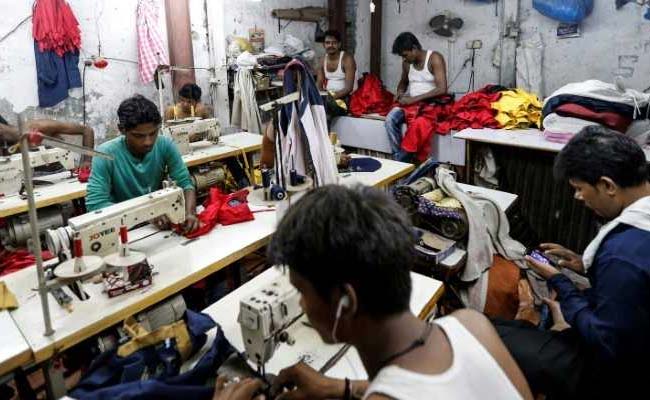India Requires Bold, Multifaceted Policy Response To Secure Robust Economic Recovery: IMF

[ad_1]
IMF on Tuesday projected an impressive 11.5 per cent growth rate for India in 2021.
India must ensure that the Covid-19 pandemic is well contained and the distribution and rollout of vaccines are well managed if it wants to achieve a double-digit growth rate for the next fiscal year, the International Monetary Fund (IMF) said on Thursday, insisting that securing a robust and sustained economic recovery will require a bold and multifaceted policy response.
IMF on Tuesday projected an impressive 11.5 per cent growth rate for India in 2021, making the country the only major economy of the world to register the double-digit growth this year amid the catastrophic coronavirus pandemic.
IMF has pegged contraction in India’s economy at 8 per cent in the current financial year, higher than the 7.7 per cent decline projected by the government’s advance estimates. The IMF had earlier expected India’s GDP to decline by 10.3 per cent in FY21.
“To achieve a double-digit growth rate for the next fiscal year, it would be important to ensure that the Covid-19 pandemic is well contained and the distribution and rollout of vaccines are well managed in a timely manner,” Paolo Mauro, Deputy Director of the Fiscal Affairs Department at the IMF, told PTI in an interview.
Securing a robust and sustained economic recovery will require a bold and multifaceted policy response, including investment in health infrastructure to further contain the pandemic and to ensure the availability and effective distribution of vaccines and treatments, he said.
The IMF projection reflects a faster than expected recovery in mobility, a rapid decline in active Covid-19 cases, and recovery in various high-frequency economic indicators in recent months, he said.
The upward revision for FY21-22 to double-digit growth reflects carryover from a stronger-than-expected recovery in 2020 and a potential improvement in economic confidence from the distribution and rollout of vaccines, Mauro said.
Responding to a question, Mauro said that while the economic recovery is underway, the output is projected to remain below its potential in the near-term and substantial downside risks remain. This implies that fiscal policy can and should remain accommodative next year, supporting the recovery.
“At a minimum, we advise countries to avoid a premature withdrawal of fiscal policy support, which could increase risks for near-term activity and potentially for more durable scarring,” he said.
Looking around the world at the experience of other countries, including those that were hit by the pandemic earlier, three areas seem to be priorities: higher spending in health; targeted support and assistance to vulnerable households and small and medium-sized firms; and higher public infrastructure spending, he said.
“First and foremost, adequate resources for the health care system are needed to cope with the increased demand caused by the pandemic, including the ongoing vaccination programme,” he said.
This requires coordinated state and central government action, given the importance of the states in providing healthcare. Beyond the current crisis, higher health care spending can achieve better health outcomes and prepare for future crises, the IMF official said.
Asserting that spending on social safety nets is the key to protect vulnerable households from the economic effects of the pandemic, he said that the disruption in economic activity is widening inequality and risks reversing past gains in poverty reduction.
The measures that were announced by India in response to the pandemic go in the right direction. It will be important to continue to support low-income households and ensure that support reaches the most vulnerable.
Preventing viable small and medium-sized enterprises (SMEs) from going out of business and maintaining, as much as possible, existing employment relationships will facilitate a private sector-led recovery.
It is helpful to evaluate current liquidity support schemes, address constraints to implementation, and consider expanding targeted support to viable SMEs, Mauro said.
In addition, higher public infrastructure spending sustained over the medium-term can help foster the recovery, close infrastructure gaps, and boost India’s growth potential. A focus on clean energy would reduce local pollution and facilitate the transformation to a greener post-pandemic economy, he said.
[ad_2]
Source link


